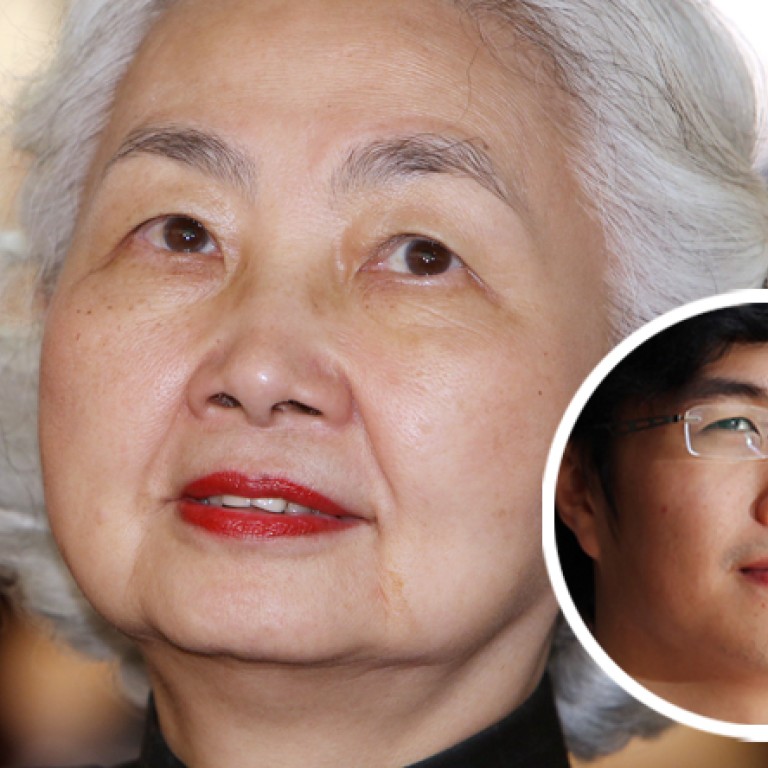
New | Debate heats up over giving district councillors seats on 2017 nominating panel
Former justice secretary Elsie Leung Oi-sie has argued against a proposal to let district councillors have a say in the next chief executive race, while Au Nok-hin (inset) says adding district councillors to the panel would be a good compromise measure.
District councillors are the latest focus of the electoral reform debate as argument mounts over whether they should be granted the right to nominate chief executive candidates.
Legal heavyweights from both Beijing-loyalist and pan-democratic camps have proposed including the city’s 412 elected district councillors in the nominating committee for 2017 candidates, in an effort to make it more representative.
But Basic Law Committee vice-chairwoman Elsie Leung Oi-sie said a councillor’s narrow interests do not merit a louder voice within the crucial committee.
District councillors have diverse backgrounds and focuses other than municipal affairs
Both University of Hong Kong law professor Albert Chen Hung-yee, a Basic Law Committee member, and Civic Party lawmaker Ronny Tong Ka-wah, a barrister, have proposed taking the current Election Committee as the basis of the future nominating committee, to which all elected district councillors would be added.
That step, they argue, would make the committee more broadly representative within the requirements set down by the Basic Law.
The proposal would increase the electorate represented on the committee by some 3.5 million – the number of registered Hong Kong voters. The 1,193 seats on the current Election Committee represents around 250,000 people.
Leung, a former justice secretary, was critical of Chen’s proposal. “District councils are not political bodies. Council members mainly focus on municipal issues such as public health and infrastructure,” Leung said.
The en masse inclusion of district councillors would also violate Beijing’s requirement of “balanced participation” in the committee, Leung said, which would be divided into four sectors: business, professionals, labour and politicians.
Southern district councillor Au Nok-hin described the plan to add all elected district councillors as a compromise option to broaden the popular mandate of the nominating committee.
“As elected district councilors have a popular mandate, their inclusion in the nominating committee is the mutually acceptable approach to expanding its [represented] electorate,” said Au, of the Democratic Party.

Au, also a political science masters student at the Chinese University, rejected Leung’s argument, saying: “District councillors have diverse backgrounds and focuses other than municipal affairs too.”
According to an analysis by , 55 per cent of the 412 elected and incumbent district councillors work full-time on the job.
A further 5 per cent, while not full-time, have jobs that involve working in the community.
About 17 per cent of incumbent councillors come from the business and financial sector, while about 13 per cent work in the professional and managerial ranks.
There is a wide diversity of occupation among councillors, including unionists, media workers and designers.
Their en masse inclusion could also rectify flaws in the electoral method currently used by the Election Committee, Au said.
He was referring to the block voting system used to return seats for the District Council subsectors under the Election Committee.
“It is either win all or lose all,” said Au.
But Chinese University political scientist Ivan Choy Chi-keung acknowledged councillors’ “vision problem”, as perceived by Elsie Leung.
“The undeniable trend is voters put increasing emphasis on neighbourhood issues,” Choy said. “If you can fix the problems surrounding just a few residential blocks that make up the constituency, you can win a district seat.”
